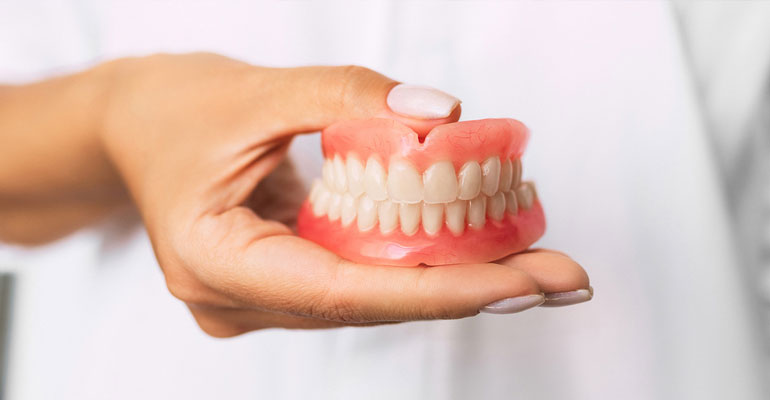Dentures
Dentures are removable oral appliances custom-made to replace missing teeth and surrounding tissues. They play a crucial role in restoring the ability to chew, speak, and maintain facial aesthetics for individuals with partial or complete tooth loss.


Types of Dentures:
1.Complete Dentures:
Full sets of dentures designed to replace all teeth in the upper or lower jaw.
2.Partial Dentures:
Removable appliances that replace one or more missing teeth and are attached to natural teeth with clasps or precision attachments.
3.Immediate Dentures:
Dentures that are placed immediately after the removal of remaining natural teeth, allowing for continuous tooth replacement.
4.Environmentally Friendly:
Unlike traditional X-ray processes that involve chemical development and disposal of film, digital X-rays are eco-friendly. They eliminate the need for toxic chemicals and reduce the environmental impact associated with film processing.
5.Improved Storage and Retrieval:
Digital X-rays are stored electronically, simplifying record-keeping for both dental practices and patients. This makes it easier to retrieve and share X-ray images when needed for referrals, consultations, or insurance purposes.
Types of Denture Materials:
1.Acrylic Dentures:
Traditional and cost-effective, suitable for both complete and partial dentures.
2.Metal Frame Dentures:
Partial dentures with a metal framework for added strength and durability.
3.Flexible Dentures:
Made from a flexible, gum-colored material for improved comfort and aesthetics.
Conclusion:
Dentures are a time-tested and effective solution for individuals dealing with tooth loss, offering functional and aesthetic benefits. While there may be an adjustment period, proper care and regular dental check-ups contribute to the success and longevity of dentures. Consulting with a dentist ensures personalized treatment plans and the best fit for individual needs.
